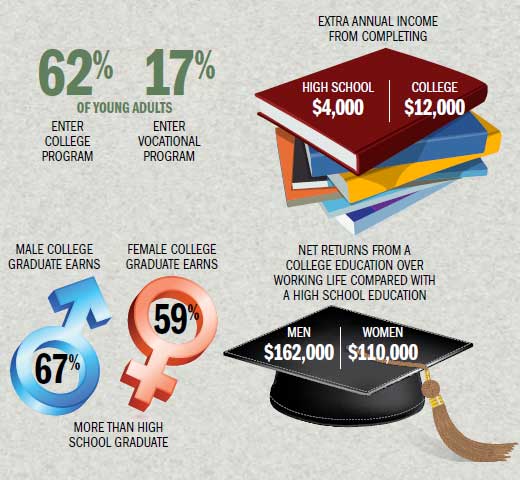Picture This
Investing in People
Finance & Development, December 2012, Vol. 49, No. 4
Dirk Van Damme, Corinne Heckmann, and Elisabeth Villoutreix
A new study says the global recession underscored the importance of education
The recent economic crisis reinforced the importance of a good education. People with more education were in general better able to get and keep jobs, even during the global financial crisis, according to a new study from the Organization for Economic Cooperation and Development (OECD).

For example, between 2008 and 2010, unemployment rates in OECD countries for people with only a high school education increased from 4.9 percent to 7.6 percent. By contrast, rates for people with a college education were much lower, rising from 3.3 percent to 4.7 percent during the same period.

The Education at a Glance report reveals stark differences between countries when it comes to higher education opportunities for young people, particularly children from poor families and those whose parents are undereducated. To tackle the growing problem of young people who are not employed, in school, or in training, OECD countries must give priority to policies that ease the transition from school to work and examine such measures as vocational education and training that can productively engage this crucial age group.

Prepared by Dirk Van Damme, Corinne Heckmann, and Elisabeth Villoutreix. Text and charts are based on Education at a Glance 2012: OECD Indicators, published by the OECD in September 2012. (Unless indicated otherwise, data are for 2010.) The report provides data on the structure, finances, and performance of the education systems in the OECD’s 34 member countries plus Argentina, Brazil, China, India, Indonesia, Russia, Saudi Arabia, and South Africa and is available at www.oecd.org/edu/eag2012.htm


